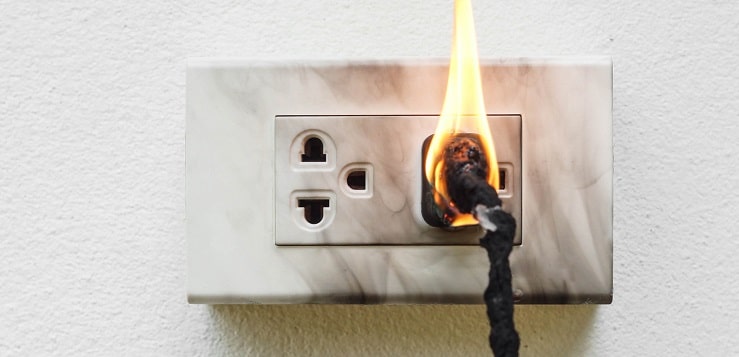After two lean years during which its decline in slots revenue was worst among Pennsylvania casinos, little Lady Luck Casino Nemacolin’s fortunes have turned for the better.
The state’s smallest casino, located in a rural setting along U.S. 40 in Fayette County, saw its slots revenue increase by 24.4% in August over August 2018. State slots revenue overall was up barely 2%.
It was the largest of four straight monthly increases in Lady Luck’s slot revenue comparisons with a year ago. Due to size and location, it still takes in far less than any other operator in the state – even the one other Category 3 facility across the state at Valley Forge Casino Resort. But it clearly stands to begin seeing a climb in annual revenues that in the fiscal year 2018-19 amounted to less than $28 million from 600 slot machines and less than $4 million from 27 table games.
The upswing has hardly been a matter of luck for Lady Luck. More than a year and a half after it had a chance to do so, the casino finally opted in June to pay the state to lift a restriction on casino visitation by the general public. The original Pennsylvania casino law dictated that patrons had to be overnight resort guests or otherwise spend a minimum $10 at the resort on dining or other purchases.
The broad gambling expansion enacted by the Legislature in October 2017 enabled the resort casinos – if they paid a $1 million fee – to allow free entrance by the public like at every other casino in the state. Valley Forge immediately opted to do so and quickly began reaping the benefits, seeing double-digit annual increases – highest in the state — in both slots and table games revenue.
New management by Churchill Downs changed things
Meanwhile, Lady Luck waited to act, and it paid the price (by not paying the $1 million price until June). Slots revenue, which makes up the bulk of casino finances, has been relatively flat across the state in recent years, but Lady Luck experienced a drop of 4.3% in the 2017-18 fiscal year and 4.8% in 2018-19.
The delay can be attributed at least in part to the time it took for a business transaction in which Churchill Downs Inc. took over management of the casino from Eldorado Resorts as part of a broader deal, in which the Kentucky Derby operator also acquired Presque Isle Downs & Casino in suburban Erie.
Lady Luck’s ownership remains in the hands of the Hardy family, which also owns the adjacent, upscale Nemacolin Woodlands resort, but the Hardys have always had a partnership with an experienced gaming industry operator to run the casino since it opened in 2013.
The casino’s director of marketing, Ronda Vanata, said Churchill Downs took over operations in March with a range of plans to upgrade the facility, including removing that key restriction on who could enter.
“There’s a lot of travelers and cars driving by here on historic Route 40 and people in them who realize, ‘Oh, I don’t have to pay to go there anymore,’” Vanata said. “That fee was a big barrier. People driving from Pittsburgh would walk through the front door, were told they had the option [to spend $10 to enter] and would drive right back to Pittsburgh. It was crazy.”
Lady Luck won’t do everything Valley Forge did
Since dropping the restriction, she said, the casino is attracting at least 25% more patrons than it did previously. But interestingly, the revenue rebound began even before the restriction ended June 17. Slots revenue was also up in May and June, as well as July and August.
Vanata said that could be attributed to public enthusiasm with the arrival of the well-known Churchill Downs brand, as well as a new marketing campaign to publicize Lady Luck after a lengthy period in which Eldorado declined to invest in media.
Churchill Downs has also spent $800,000 to switch out 100 of the 600 original slot machines with newer models, in addition to spending to upgrade technology, the parking lot, the players club and its kiosks as part of an overall re-freshening.
“The last three months have been a lot of work in getting this property to a good place … offering a betting customer experience, Vanata said.
But it doesn’t mean Lady Luck will undertake two other changes that Valley Forge also take advantage of under the 2017 expansion law. The eastern Pennsylvania casino paid a $2.5 million fee to add 250 slot machines on top of the 600 it was originally allowed. It also obtained a $10 million license to provide sports wagering.
Lady Luck, unlike Valley Forge, is far from the kind of population center that would make a brick-and-mortar sportsbook worthwhile, and Churchill Downs will soon be able to direct customers in Fayette County toward an online sports betting operation to be connected to Presque Isle Downs.
As for adding more slots, Vanata said the facility’s 69,000 square feet of physical space is already filled.
“We’re very small – we have nowhere to expand to,” she said.
That small size is also a benefit, she said, as it sets Lady Luck apart as a more personal, “boutique” casino in comparison to the two far bigger southwestern Pennsylvania casinos, the Meadows Racetrack & Casino in Washington County and the Rivers Casino in Pittsburgh.
“Our team members know the customers,” Vanata said, expecting that people who have been first-time visitors to Lady Luck since the admissions policy changed will like the service and return, pushing those recent revenue increases even higher.






